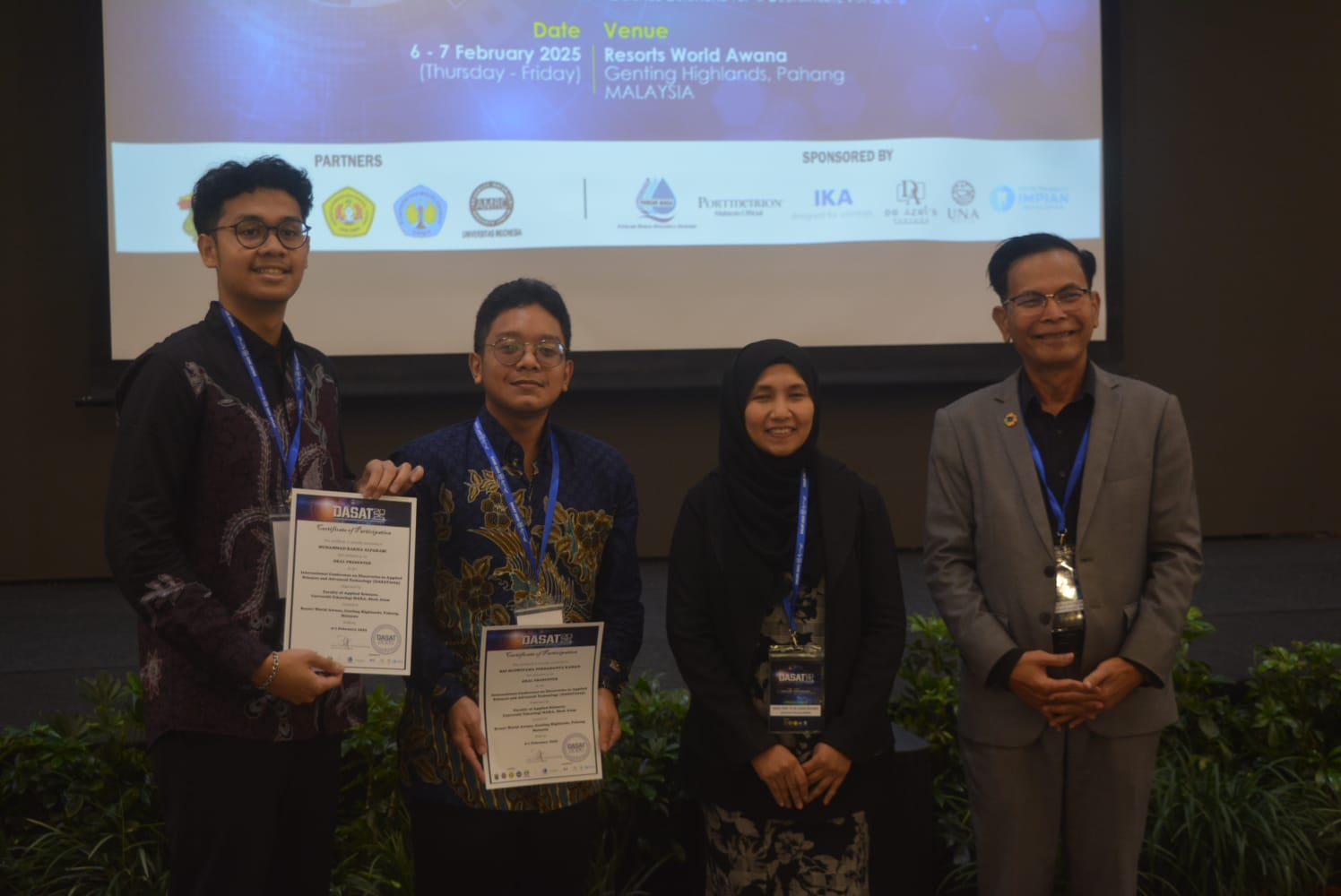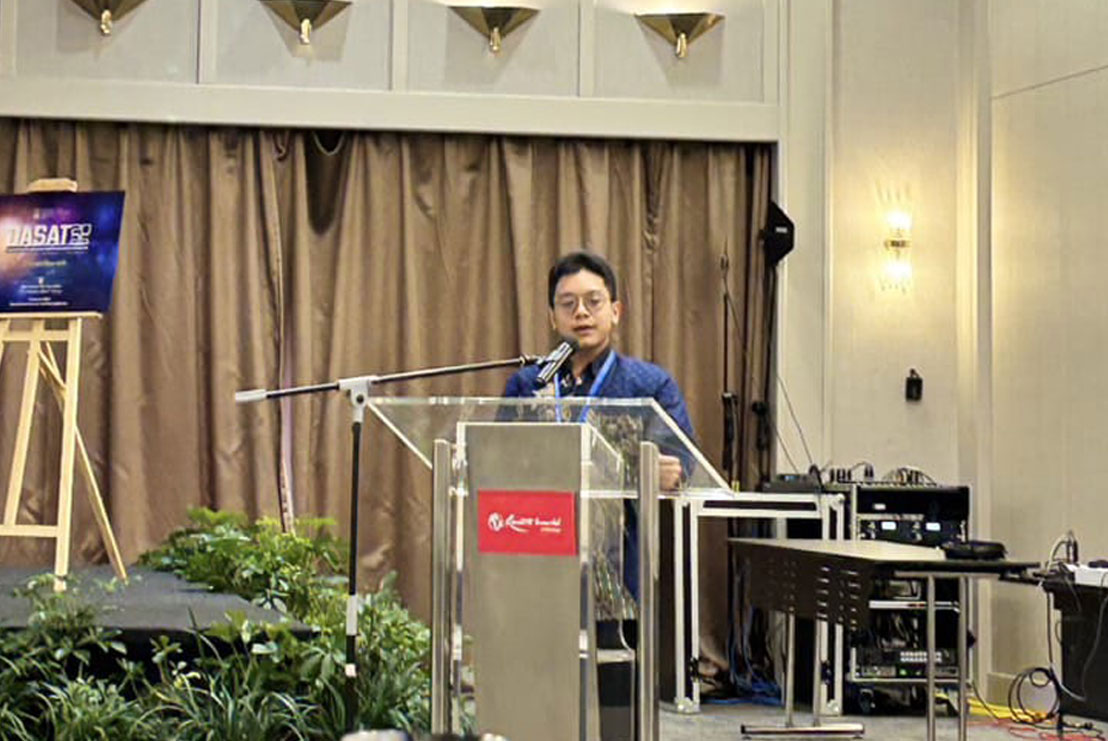A student of Universitas Indonesia (UI) has once again made a proud achievement. This time, Rio Sudwitama Persadanta Kaban, a 2021 undergraduate student of Metallurgical and Materials Engineering at the Faculty of Engineering UI, won the Best Oral Presenter award at the International Conference on Discoveries in Applied Sciences and Advanced Technology (DASAT 2025). This prestigious conference was organized by Universiti Teknologi MARA (UiTM) and held in Genting Highlands, Malaysia, with 102 participants from various academic and industrial institutions.
Rio presented a research project titled “Prediction of Tensile Strength, Hardness, and Melting Point of Nickel and Iron-Nickel Superalloys Based on Composition Using Machine Learning.“ This study focuses on utilizing machine learning (ML) and deep learning (DL) technologies to predict the mechanical properties of nickel—and iron-nickel-based superalloys widely used in the aviation industry. Dr. Ir. Jaka Fajar Fatriansyah, M.Sc., IPM, ASEAN Eng, supervised the research.
Superalloys are materials known for maintaining mechanical properties at high temperatures. Nickel-based superalloys typically contain 38–76% nickel, while iron-nickel-based superalloys comprise 15–60% iron and 25–45% nickel. These materials are commonly used in gas turbine engine components that operate under extreme conditions, including high temperatures, high rotational speeds, and abrasive environments.
“By implementing machine learning and deep learning techniques, we accelerated the material design process and enhanced the mechanical properties of nickel- and iron-nickel-based superalloys. The Artificial Neural Network (ANN) model delivered the most accurate predictions, enabling us to modify the composition of INCONEL-718 to improve its tensile strength, hardness, and melting point,” said Rio.
Prof. Kemas Ridwan Kurniawan, S.T., M.Sc., Ph.D, Dean of the Faculty of Engineering UI, stated that the outcomes of this research hold great potential for application across several strategic industries in Indonesia, particularly in the manufacturing, energy, and transportation sectors. “In the aviation industry, stronger and more heat-resistant superalloys will improve the efficiency and durability of locally manufactured aircraft engine components. Additionally, the power generation industry—especially steam and gas power plants—can benefit from these materials for turbine components operating under extreme heat,” explained Prof. Kemas.
The advantage of the machine learning and deep learning methods Rio developed is their ability to accelerate material optimization processes, reduce laboratory experimental costs, and provide more accurate predictions of material compositions tailored to industrial needs. With this capability, domestic industries can become more self-reliant in developing high-performance materials that support national technological resilience and enhance Indonesia’s global competitiveness.
***
Public Communications Office
Faculty of Engineering Universitas Indonesia


